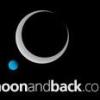

| Visitors Now: | |
| Total Visits: | |
| Total Stories: |

| Story Views | |
| Now: | |
| Last Hour: | |
| Last 24 Hours: | |
| Total: | |
Russia Believes its Own Propaganda
by edward wright
Some things have not changed since the end of the Cold War. Russia is still making the mistake of believing its own propaganda.
A new article by Alexei Lyakhov and Artyom Kobzev proclaims, “Russia Has No Rivals in Space Tourism.” The article was published by the Voice of Russia, the international radio service of the All Russia State Radio and Television company.
Lyakov and Kobzev point with pride to the current Soyuz monopoly. “Although almost all space tourists have so far been U.S. citizens, the USA sends nobody to outer space on a commercial basis.”
Among the seven citizen space explorers who’ve visited ISS, there are five Americans, one Canadian, and one South African. One of the Americans is Anousheh Ansari, who is Iranian by birth. Americans are currently largest group (71% by citizenship, or 57% by birth), but it does not seem fair to say that “almost all” are Americans.
Of course, that’s based on a very small sample size. Projecting future nationalities from such a small sample size would be foolish. Even more foolish is projecting the future of the human spaceflight industry from current providers.
In over 50 years, fewer than 600 people have flown in space. Not even a baker’s dozen per year. If companies like XCOR Aerospace and Virgin Galactic are successful, those numbers could quickly grow to more than 600 in a single year.
Yet, Russian space experts dismiss these developments. The article quotes Academician Alexander Zheleznyahov:
The point is that many companies that appeared on that market recently include suborbital flights in their services while Roscosmos is the only agency that can offer an orbital flight. These two are different things. A suborbital flight is actually a jump into space. Those who will be on board a spacecraft will experience zero gravity for 5 to 8 minutes, not more.
This resembles the condescending remarks that executives from companies like IBM, DEC, and CDC made about the first microcomputers. Zheleznyahov overlooks the value of affordability and flight rate. Strangely, it was a Russian who said, “Quantity is a quality all its own.”
The article goes on to state, “Experts are sure that to talk about turning space tourism into a full-value industry is somewhat premature at the moment. And what matters here is readiness to run risks, not money as such, Head of the Institute of Space Policy Ivan Moiseyev said.”
We have no idea what the latter statement even means. Heading the Institute of Space Policy is surely a paid position, so Moiseyev must know that money matters. If running risks were the only thing that mattered, he would resign his post and become an amateur cliff diver.
Money clearly matters to the Russian Federal Space Agency (Roscomos), which has increased the price it charges NASA for Soyuz flights to $75 million per astronaut (up from just $35 million a few years ago). The Russian government is clearly taking advantage of its current monopoly, maximizing its short-term profits rather than taking the risk of developing new systems. Meanwhile, SpaceX expects to fly astronauts to ISS for around $10 million per seat, once it gets the go-ahead from NASA and Congress.
The real breakthrough, however, will be the suborbital vehicles which reduce the cost of traveling into space to $100,000 or less, which will change access to space the way microcomputers changed computing. Comes the revolution, Comrades!
Edward Wright is chairman of the United States Rocket Academy and project manager of Citizens in Space. You can find more articles by Mr. Wright at the Citizens in Space web site.
Moonandback
reports on spaceflight daily and our documentary project interviews \”the people who are making space happen\”.
Source: http://moonandback.com/2013/05/07/russia-believes-its-own-propaganda/



